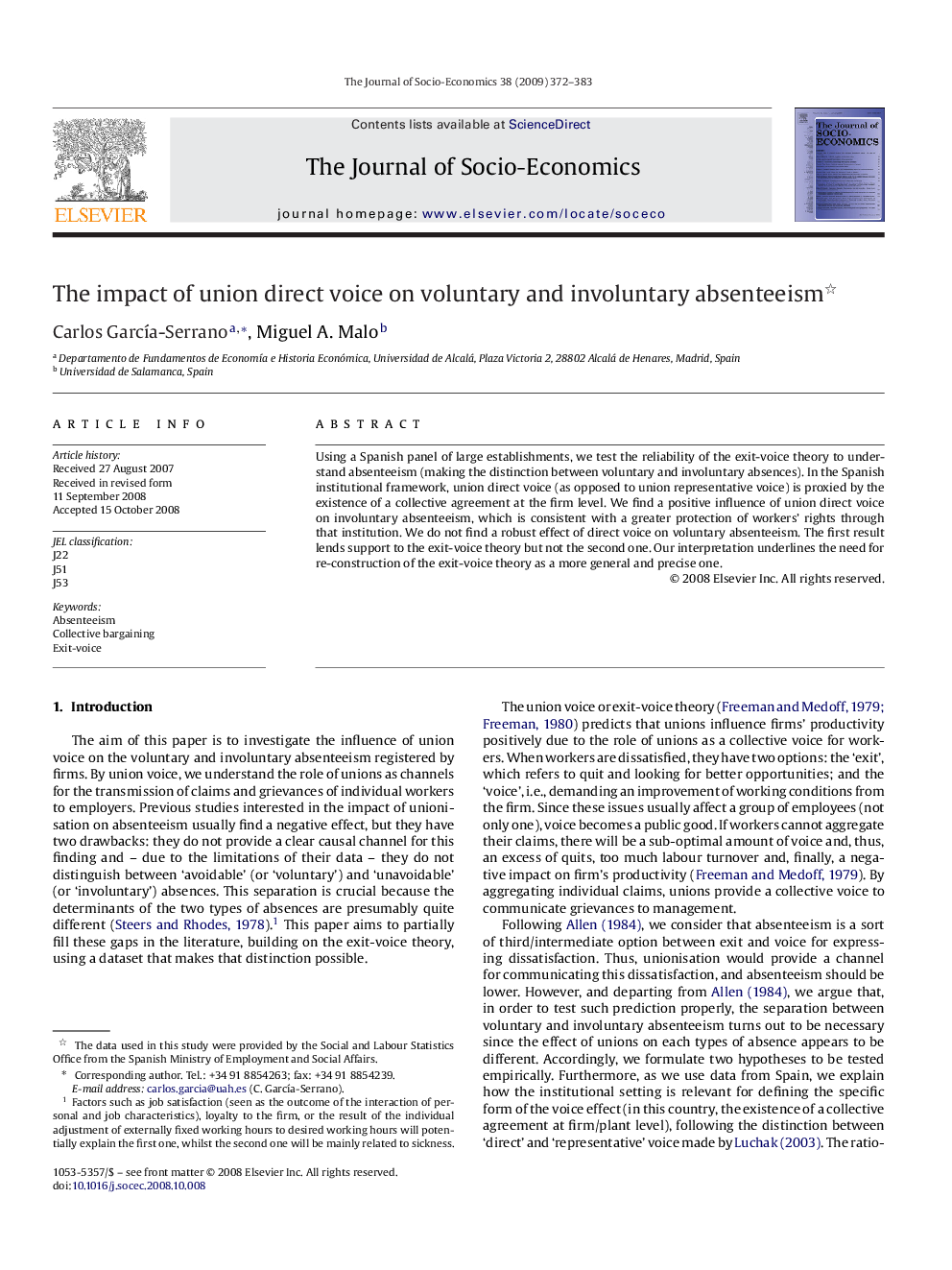| Article ID | Journal | Published Year | Pages | File Type |
|---|---|---|---|---|
| 970193 | The Journal of Socio-Economics | 2009 | 12 Pages |
Using a Spanish panel of large establishments, we test the reliability of the exit-voice theory to understand absenteeism (making the distinction between voluntary and involuntary absences). In the Spanish institutional framework, union direct voice (as opposed to union representative voice) is proxied by the existence of a collective agreement at the firm level. We find a positive influence of union direct voice on involuntary absenteeism, which is consistent with a greater protection of workers’ rights through that institution. We do not find a robust effect of direct voice on voluntary absenteeism. The first result lends support to the exit-voice theory but not the second one. Our interpretation underlines the need for re-construction of the exit-voice theory as a more general and precise one.
